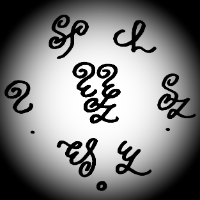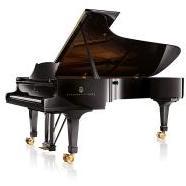Leaderboard
Popular Content
Showing content with the highest reputation on 12/02/2023 in all areas
-
I agree with Peter - while this piece is clearly original, the harmonic palette isn't as fresh. Besides that, this piece is perfect. I especially enjoyed listening to your primary themes within the exposition, such a beautiful melody. Your Development was quite nice as well. You are a wonderfully talented pianist-composer and this piece does both of those titles a great justice.2 points
-
Well, the nights are getting longer, the frosts are appearing on the ground, @PeterthePapercomPoser and @Thatguy v2.0 are locked in battle... It can only mean one thing - it's long overdue time for the annual Young Composers Christmas Music Event! The Brief Same as last year - write anything you like inspired by a winter celebration of your choice! Or, if you don't celebrate anything, maybe a piece to capture gazing over miles of snow (or grass if you live in the Southern Hemisphere) ... If you want to participate, pop a comment below! You could have a look at last year's competition for inspiration if you like: It would be great to see lots of you taking part! No prizes, no winners, just a way to get the creative juices flowing during the Season. Submissions will open on the 1st December. There will be a separate submissions thread, so look out for that! There's no time limit but you'll probably want to have your piece done by Christmas, or at least the end of December. Excited to see what you come up with!1 point
-
Okay, doing this was SO random. I just sat and started doing some chord progressions and then I concluded that it would fit the idea of a Kyrie. Also I haven't composed for voice in ages... I want to ask advice on something specific though. How would you add more rhythmic variety to this kind of counterpoint in 3/4? Also does the piece remind you of any other existing work?1 point
-
I would say that the dynamics of the piece could be more varied; it's largely of the same dynamics and intensity throughout, which makes it feel less menacing and mysterious IMO1 point
-
Indeed. Upon learning of his passing in late July, I was first shocked and subsequently devastated. Truly most unfortunate, yet even more so the fact that some of his most important videos had already been taken down beforehand by shady entities using (most likely baseless) copyright claims to their own lucrative advantage. One of said videos happened to be the one that inspired me to begin composing fugues in the first place, back in 2019 (yes, of course, I'm referring to The Art of the Fugue (here's a reuploaded version I've managed to find thereof: https://www.youtube.com/watch?v=m-1DcmUQC30)). I should probably dedicate at least one of my compositions to him, although rather frustratingly my method of scrolling music happens to be radically different from the one he specialized in, much more refined and time-consuming (from my understanding at least). Requiescat in pace sitque ei terra levis.1 point
-
I do have to say I was tempted to dismiss this observation as a mere nitpick when I first read your comments, even in my awareness of the relatively limited amount of diphthongs in both Classical and Ecclesiastical Latin. Indeed, in the first two cases, the conjoining of syllables you outright sanctioned as "wrong" could only be feasibly explained by the use of synalephae, though the third one is actually attested in monosyllabic words such as the interjection "hei". Just as you pointed out, it really is no big deal, and in fact, I would like to argue that it looks and sounds better this way, lest the note on which said syllables coalesce require subdivision upon splitting the synalepha. Of course, I may appreciate the aesthetic subjectivity of this matter, but I could not leave my choices on that regard go undefended. I did, however, include a slight modification in bar 22, so as to point out how the otherwise merged syllables remain unlinked, so long as they correspond to different consecutive notes. Happy now? Regarding the contrapuntal flaws you indicated, the most blatant ones have been accordingly corrected. Thank you for your criticisms.1 point
-
Hey Peter, Thx! I always prioritize cohesion first since without it the music will become a mess haha! Actually that's what I have told myself haha! I agree on your observations very much since I myself think it's a bit too conservative and cliched. B.50-51 or b.116 is way too much like the Appassionata. In fact at the time of composing I thought zero of originality, because 1) I was way too depressed to think of "creating" something at that time, I was just thinking of expressing my anger and fear without thinking too much on originality; 2) I thought I had displayed some originality in my Sextet movement and I wrote this sonata movement rather as a restoration piece of originality without using too much of it. I hope the 2nd movement that has been finished would have more originality of harmony in it! At least I think it's more original with more pentatonics even though there are still bangings of chords there! You are right the music is overly melodramaic, overblown and sturm und drang, since that was the status of my mind then. But at least the movement acts as self-therapy and does a good job on it. Hmm... So you are putting me alongside the great composers in music history??!! I feel happy but crushed to be compared with them haha! But I will definitely try to have my own unique sound when I want to. This sonata is surely not a piece I would love to express my originality given the therapeutic nature of the movement. Thx for your review! Henry1 point
-
Hi Henry! This is a great sonata movement and it coheres very well and is thematically unified but with enough variety to sustain interest from beginning to end! It also is very smoothly connected by good transitions. My complaint is in the type of pianism and style that you use throughout the piece giving me a very melodramatic and heavy impression because of all the sturm und drang. This is a problem that I might have to face in the future myself if I ever plan on trying my hand at writing a piano sonata (so take this review with a grain of salt since all I have is a very short sonatina which I've tried to learn but am not good enough to play). The problem is: how does one write a piano sonata in today's day and age avoiding stereotypical and clichéd pianism and including an original harmonic and melodic language? Don't get me wrong - your sonata is perfect the way it is and I don't think it can be improved in any way, being what it is, but I can't help but find some parts of it overly melodramatic and overblown and somewhat clichéd (bars 50 - 51 and 185 - 186). I guess it does sound Beethoven-esque and Chopinistic, but with quite original melodies. But the harmonic language and style is very conservative to me. I understand that the aforementioned bars cannot be excised from the piece because they are a logical consequence of things that came before because the piece grows it's ideas very organically from previous material. But I can't help but feel a sense of bombast despite its being very bold and incisive and sharp (and it's possible I might be more enthusiastic about its good features if it was a better recording and not so dry as well). But of course, overall this is very enjoyable for what it is and is meant to be, but I do wish you explored some more of your own original harmony. Most of the great composers in music history found ways to create their own original harmonic language/formulas that were unique only to them and I wouldn't want you to shortchange yourself by never embarking upon this pursuit! Thanks for sharing! Peter1 point
-
Wassup Henry, I hope your doing well. Firstly, I just want to say that this recording is much better than the one you sent me earlier, the bass is far less muddy and the treble is somewhat clearer (from what I can hear). Also, good job on playing your own pieces. This seems very difficult, you must be a great pianist. With regards to the music, I think this is near perfection. My favourite is probably the development, it sounds like Autumn leaves falling down to me. Like Mike, I think this sounds like a modern Beethoven with touches of Chopin in the pianistic sections, but overall I'm hearing Henry Ng rather than those two. Henry, I think that you should at least try to get this performed, or at least teach it to your piano students when they reach the level, the way the old master (Chopin, Liszt etc.) taught their students their own compositions. It's up to you in the end, but this piece is definitely something I'd want to learn if I was a pianiast. Anyways, lovely piece, hope to hear the other movements soon! Ciao, Arjuna1 point
-
There's nothing to criticize with this piece, other than the audio recording quality. It sounds like I am listening to a modern Beethoven who had some inspiration from Chopin. I hear slight hints of Chopin's first sonata, but other than that, this is your own voice. In fact this piece is much better than Chopin's 1st sonata. You have a gorgeous melody going on here which helps boost this piece's listening value. In fact, a lot of Beethoven's sonatas aren't as lyrical as this one. I found myself playing this theme in my head all day today (due to me listening to this piece like 4 or 5 times last night). I also had no idea you were quite the pianist either. Don't worry about the missed notes, it's more about the overall playing, and ability to convey the message clearly. Really the only thing missing here is the sound quality, because everything else is perfection. I might have to do a dedicated video of this piece on my YouTube channel, because this movement really captured my interest. I may experiment with recording parts of your piece in midi, to see if I can help bring out the clarity of some sections. And since you compose in polyrhythms, it's really a perfect study because I can demonstrate how Music Jotter can use the polymeter to score certain sections of this piece. What we have here is an expertly written composition and well executed performance. May I ask how long it took to compose this movement?1 point






.thumb.png.8b5b433a341551e913a34392660bc95b.png)
